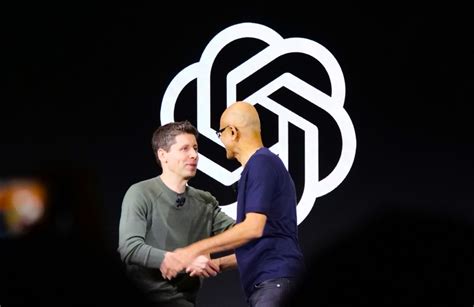The recent announcement of antitrust investigations targeting Nvidia, Microsoft, and OpenAI marks a significant turning point in the technology industry. The U.S. government’s move to subject these tech giants to legal scrutiny isn’t entirely unexpected, considering their dominant positions in their respective markets. However, the motivations and potential outcomes of these investigations are complex and multifaceted. The backdrop to these inquiries is a tech landscape where innovations have rapidly transformed market dynamics, raising concerns about competitive fairness and market monopolization.
Nvidia’s rise as a powerhouse in AI and graphics processing is often attributed to its revolutionary CUDA platform, which has become indispensable for machine learning and high-performance computing. Nvidia’s surge was not an overnight success but the result of strategic investments and relentless innovation over many years. Yet, the company’s dominance has sparked debates about the fairness of its competitive practices. Critics argue that CUDA is a significant ‘lock-in’ tool that limits customers’ options to Nvidia’s ecosystem, thereby stifling competition. The pragmatism behind such an argument is rooted in how alternative platforms like OpenCL and ROCm have struggled to gain traction due to a lack of equivalent support and performance on Nvidia hardware.
The issue of ‘lock-in’ with CUDA isn’t new, yet it remains contentious. One comment points to the numerous hurdles developers face when attempting to use OpenCL with other GPUs, particularly from AMD. Reports of frequent crashes and suboptimal performance underline the challenges that competitors face in providing viable alternatives to CUDA. On the other hand, Nvidia supporters suggest that the company is merely reaping the rewards of its superior product and strategic foresight. As one user noted, ‘Nvidia solved a hard problem and their competitors all failed.’ This highlights a broader debate in antitrust law: should companies be penalized for their competitors’ shortcomings or their own market competence?
Microsoft and OpenAI’s situation is similarly complex but distinct. Microsoft’s deep pockets and strategic investments in OpenAI have raised eyebrows about their market maneuvering. Historically, Microsoft has faced antitrust scrutiny for leveraging its dominant position in desktop operating systems to stifle competition. Today, critics argue that Microsoft’s investment structure in OpenAI and its recent workforce acquisitions could be efforts to skirt traditional antitrust regulations. The strategy of structuring deals in ways that avoid regulatory scrutiny yet achieve similar outcomes to acquisitions has drawn skepticism from legal experts and regulators alike.
An interesting perspective emerges from the comments discussing how Nvidia and Microsoft’s past successes shouldn’t insulate them from scrutiny regarding their present practices. The antitrust law focuses not solely on market dominance but also on the ways such dominance is maintained and potentially abused. For Microsoft, accusations of structuring deals to avoid antitrust implications resonate with its historical maneuvers, hinting at a potential pattern of behavior that regulators may now aim to curb.
The defense of Nvidia often circles back to its commitment to innovation and excellence in a space where competitors like AMD and Intel have seemingly dropped the ball. The argument goes that Nvidia’s dominance is deserved and has sparked considerable advancements in AI and machine learning. Discussions frequently mention AMD’s repeated failures to produce a CUDA alternative over the years and their strategic mistakes, which Nvidia capitalized on effectively. It’s hard to overlook the significant role of execution here – Nvidia wasn’t just lucky; it was strategically brilliant.
On the technical side, there’s a palpable frustration in the developer community over the usability and stability of non-Nvidia platforms. The narrative of ‘better product’ verses ‘anticompetitive behavior’ is nuanced, reflecting a reality where Nvidia’s ecosystems are far superior in performance and support, making it indispensable for serious computational applications. This leads to the crux of the regulatory challenge: distinguishing between natural monopolies due to superior product offerings and unfair market practices that stifle innovation.
Ultimately, these investigations will likely delve into the minutiae of business practices, market strategies, and technological ecosystems. Whether regulators will find conclusive evidence of anticompetitive practices remains to be seen, but the scrutiny itself reflects a broader societal demand for transparency and fairness in the tech industry. It’s a reminder that technological prowess must be balanced with ethical considerations, ensuring that innovation doesn’t come at the expense of fair competition and consumer choice. This ongoing discourse around Nvidia, Microsoft, and OpenAI is essential for shaping the future dynamics of the technology sector. As developers and consumers alike await the outcomes, one thing is clear: the rules of the game in tech are under transformation, and this is just the beginning.


Leave a Reply